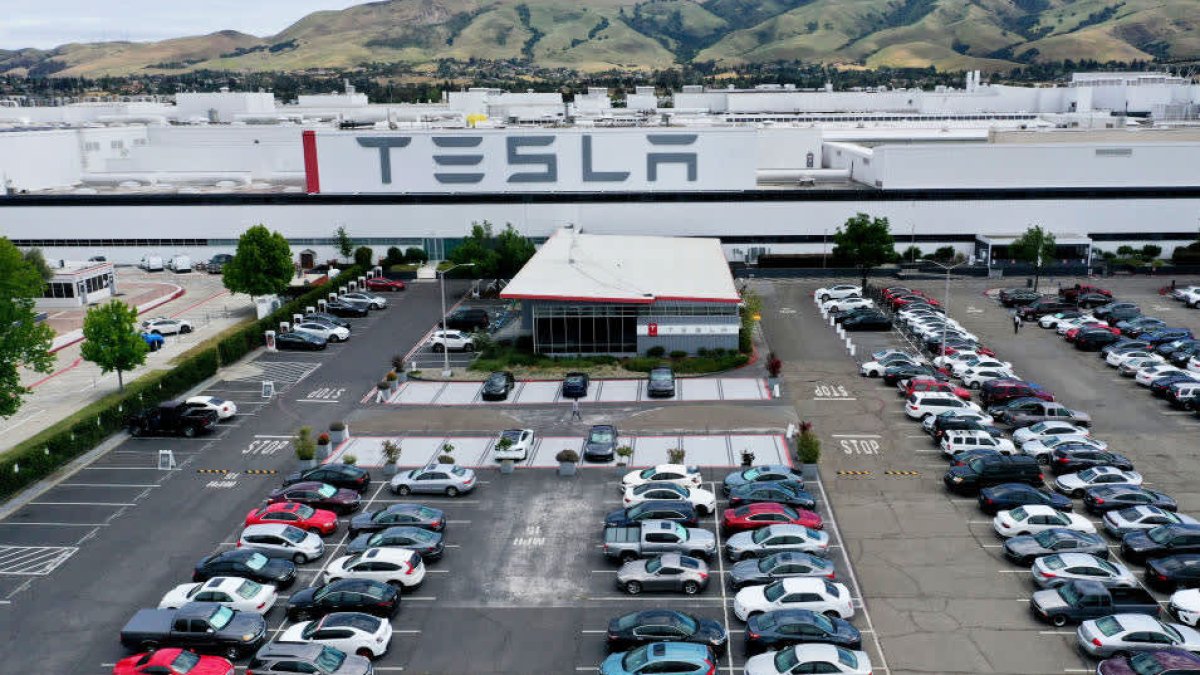States
Tesla’s Fremont Factory Racism: We Need Workplace Equality And Accountability

Tesla’s Fremont Factory Racism Allegations
The US government sues Tesla for alleged racial discrimination at Fremont, California, manufacturing. The complaint alleges that non-Black and White male workers often used the N-word to insult Black employees. The claim also alleges racial comments, threats, and graffiti on production line cars. The complaint claimed discrimination occurred throughout manufacturing shifts, divisions, and jobs.
Employee Complaint Retaliation
The courtsuit also states that Black workers who reported discriminatory conduct to managers were retaliated against. These included being given undesirable jobs, having their timetables changed, and being fired. Another problem is that this claimed retribution tends to foster a climate of fear and quiet, deterring workers from speaking out about workplace discrimination.
Previous Legal Issues And Tesla’s Response
Tesla has been sued for racism at its Fremont facility before. In a legal action brought by a Black elevator operator who alleged chronic discriminatory harassment, the corporation was ordered to pay $3 million earlier this year. A California state civil rights office sued Tesla for identical grounds before. Tesla has rejected the charges, writing in a blog post that the firm has always responded harshly to any wrongdoing, including racist insults and harassment. Tesla has not replied to the current complaint or commented on earlier legal conflicts despite the claims.
Effect On Workplace Culture And Morale
The lawsuit’s allegations of Tesla’s Fremont factory’s racism have far-reaching effects. If confirmed, such discrimination may damage workplace culture and morale. Racist workplaces may make workers feel uncomfortable, afraid, and alienated, especially those targeted. Increased turnover and decreased employee engagement and productivity might result. Racial discrimination may also develop a culture of silence, making victims unwilling to speak out for fear of reprisal or marginalization. This hurts the company’s diversity and inclusion initiatives and reputation as a fair and courteous employer.
Legality And Corporate Responsibility
Multiple racial discrimination cases against Tesla raise issues about the company’s legal liability and corporate responsibility. Tesla claims zero tolerance for wrongdoing, yet repeated complaints and legal proceedings imply a failure to confront and prevent it in its plants. Corporate responsibility includes strong anti-discrimination rules, vigorous enforcement, and a culture of tolerance and respect. It also requires safe channels for workers to report discrimination and open processes for swift and efficient resolution. The latest Tesla lawsuit highlights the need for equal and fair treatment for all workers by holding firms responsible for promoting a discrimination-free workplace.
The Need For Comprehensive Workplace Anti-discrimination
Tesla’s Fremont factory’s alleged racism highlights the need for thorough and aggressive anti-discrimination policies in all businesses. It emphasizes the need for solid anti-discrimination rules and a culture of diversity, fairness, and inclusion. All staff should get frequent and required diversity and sensitivity training, transparent and accessible reporting channels, and an independent authority to evaluate complaints impartially. Companies must emphasize hiring and promoting a diverse staff and providing equitable career growth and professional development opportunities. Implementing and enforcing comprehensive anti-discrimination policies may create a more inclusive and respectful workplace that respects the dignity and rights of all laborers, regardless of color, ethnicity, or origin.
Investor And Public Views On Tesla’s Workplace
Tesla’s public and investor image may be affected by the Fremont plant racial discrimination cases. Such charges might damage Tesla’s brand name by undermining public faith in its ethical and inclusive working procedures. Investors may perceive these instances as weak management and governance, raising worries about the company’s internal culture and legal risk mitigation. Hostile public and investor views may hurt Tesla’s finances and market value. Therefore, Tesla must take tangible actions to address these charges, show genuine efforts to establish an inclusive workplace and engage clearly with the public and stakeholders to regain trust in its corporate principles and practices.
Read Also: EPA’s Effort To Combat Environmental Racism Was Thwarted By State Opposition.
Tesla’s Diversity And Inclusion Initiatives’ Long-term Effects
Racial discrimination lawsuits must improve Tesla’s diversity and inclusion efforts. The company’s diversity efforts are questioned by such charges, which cast doubt on their efficacy. Building a diverse and inclusive workforce needs a comprehensive strategy that eliminates prejudices, fosters cultural awareness, and assures equitable opportunity for all workers. Tesla must emphasize the establishment of vast diversity and inclusion initiatives that go beyond surface measures and integrate a culture of respect and equality throughout all levels of the business to create a more inclusive workplace and attract varied talent.
Tech Industry Workplace Diversity Implications
Tesla’s Fremont factory’s racial discrimination charges echo tech sector diversity and inclusion issues. Many tech businesses struggle with racial discrimination and minority group underrepresentation despite diversity initiatives. Tesla’s lawsuit reminds the tech sector that structural challenges and prejudices must be addressed to create a more inclusive workplace. It emphasizes the need for industry-wide measures to attract and retain diverse personnel, create an inclusive workplace culture, and handle discrimination and harassment transparently. The IT sector can promote diversity and inclusion, innovation, creativity, and a fairer future for all workers by aggressively tackling these issues.












You must be logged in to post a comment Login